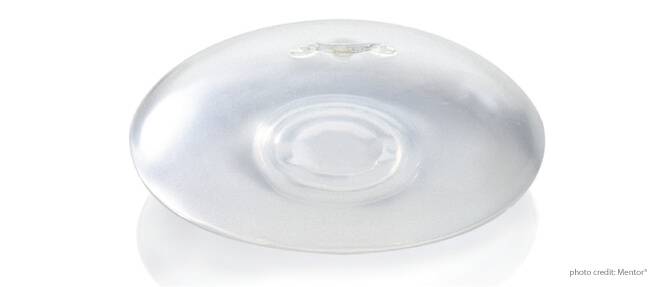Capsular Contracture Prevention, Symptoms, And Treatments
What is capsular contracture?
Capsular contracture is a complication of breast augmentation that affects an estimated 12% of patients according to some studies.
While the formation of a capsule around the breast implant is the body’s normal response to the placement of an implant, if that capsule contracts or thickens, it can squeeze your implant causing pain, shifting, distortion, or hardening of the reconstructed breast. This becomes a problem that warrants a visit to your plastic surgeon.
What causes capsular contracture?
The exact cause of capsular contracture is currently not known. However, a generally accepted theory is that it is the body’s response to the presence of certain bacteria in the implant pocket.
What is my risk of developing capsular contraction?
We are not currently unable to accurately predict which patients who undergo breast augmentation may experience capsular contraction related issues. There are, however, several risk factors that may increase a patient’s chances of developing capsular contraction:
- Post-surgical complications like hematoma or infection
- Autoimmune disorders
- Past radiation therapy
- Active smoking
What are the symptoms of capsular contracture?
While symptoms of capsular contracture can occur at any time, it is estimated that up to 75% of cases occur within the first two years following augmentation surgery. Symptoms typically emerge slowly, starting with an increasing feeling of tightening or firming of the breasts. Severity of symptoms can persist causing the breasts to feel painful, appear deformed.
A common system of grading the severity of capsular contracture is the Baker System, which divides cases into four levels based on symptom severity:
- Grade 1: Breasts are soft with a natural appearance
- Grade 2: Breasts are slightly firm but still maintain a normal appearance
- Grade 3: Breasts are firm with slightly abnormal appearance
- Grade 4: Breasts are painful, hard, and have a deformed appearance
Can capsular contracture be prevented?
Capsular contracture prevention cannot be guaranteed, but there are a few techniques that may minimize a patient’s risk of developing capsular contracture:
- Sub Muscular Placement: Placing the implant under the pectoralis major muscle has been clearly demonstrated to discourage the growth of excessive scar tissue around the implant (learn more about breast implant placement options). This is probably due to the decreased contact between the implant and breast tissue when this approach is used.
- Optimal Surgical Technique: Obsessively sterile protocol, the use of an introductory sleeve to place the implant,single surgeon handling of the implant, glove change before handling the implants, repeat prep of the surgical field before handling the implant, triple antibiotic irrigation of the implant pocket, excellent hemostasis during surgery and thoughtful handling of the tissues and the breast implant. These are some of the important steps that we believe help drive down the risk of capsular contracture.
- Antibiotics: Some surgeons prescribe patients antibiotic before and/or after the breast augmentation procedure in an effort to decrease the chances of subclinical colonization of the space around the implant.
- Post-Procedure Massage: The science is not clear on this, but many surgeons are advocates for postoperative breast massage with certain types of implants. Therefore your surgeon may recommend various massage or compression exercises as part of your aftercare instructions.
Treating Capsular Contracture
Though is it possible to treat capsular contracture with certain oral medications in some cases, the most effective treatment is to undergo a breast implant revision surgery. During this procedure the affected implants are removed and capsule scar tissue is surgically excised (capsulectomy). A fresh implant is usually placed during such a procedure.
Click here to view before and after photos of breast implant revision surgeries performed at Westlake Dermatology & Cosmetic Surgery.
Disclaimer: The contents of the Westlake Dermatology website, including text, graphics, and images, are for informational purposes only and are not intended to substitute for direct medical advice from your physician or other qualified professional.


Are there any specific massage techniques u would encourage to prevent this. Also, Is it common for it to happen on the side of ones dominant hand?
Hi Oge,
Thanks for reading our blog and submitting your great question.
We always recommending discussing specific massage techniques with your surgeon, that’s the best place to start! Also Dr. Stile has a great youtube video that showcases some techniques here: https://www.youtube.com/watch?v=qFihXCzb2oo
We hope that helps!
Thanks,
WD Staff
I have capsular contractor and thinking of getting pregnant. Will this cause me a lot of pain or will this be bearable. Does it effect breast feeding ??
Thanks
Hi Michelle,
Thanks for reading our post and submitting your great question to the community. You may experience some issues with lactation and breast feeding, this will depend upon the degree of severity of the contracture along with other characteristics of your breasts. We would recommend you seeing a board certified plastic surgeon for an in-person assessment. They may determine that treatment before you become pregnant can lessen this risk.
Thanks,
WD Staff
My implants are Silicone and 33 yrs. old. I never had a problem with them up until 2015. I noticed they were hard and deformed. I went to my plastic surgeon and he said as long as they are not bothering me or leaking I could live with it. He did suggest to replace them if I could afford to do so. I couldn’t so up until Nov. 2018 I started noticing pain or discomfort in my armpits and my chest wall. My mammography was clear in Jan. 2019. I just had an MRI of the chest wall and armpits. I am waiting on the results. My Plastic Surgeon never mentioned Capsular Contracture. How do I know if they are leaking? Can Capsular Contracture cause cancer? I have horrible Insurance and a very tight budget. I am 64 and very healthy. What are my options?
Hi Victoria,
Thanks for reading our post and sharing your story with our community.
It seems like you have done the right thing by getting an MRI, that is the best way to check if a silicone implant is leaking or ruptured. So you should have a firm answer on that front as soon as you get those results. Make sure to discuss the issue of leaking with the MRI provider in detail.
Capsular contracture has not been proven to cause cancer. However, if you are experience discomfort and if the implants have become malpositioned or deformed we would recommend being assess for an implant exchange or removal procedure. This is something you may want to pursue regardless of whether or not the implants are leaking. Unfortunately most insurance will not cover such a procedure but there are some low cost financing options through companies like Care Credit.
I hope this helps! If you are in the Austin area and would like to come in for an assessment please give us a call.
Thanks,
WD Staff